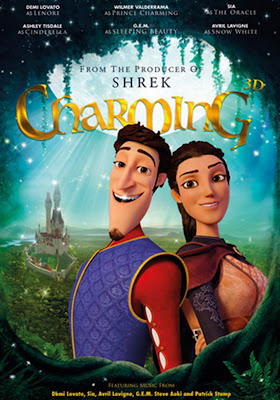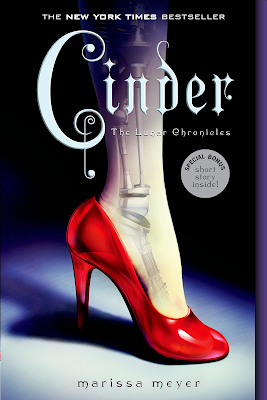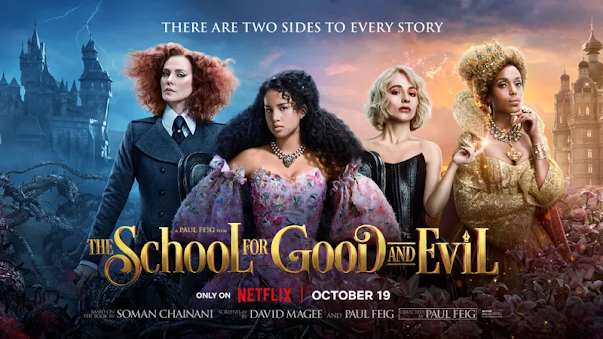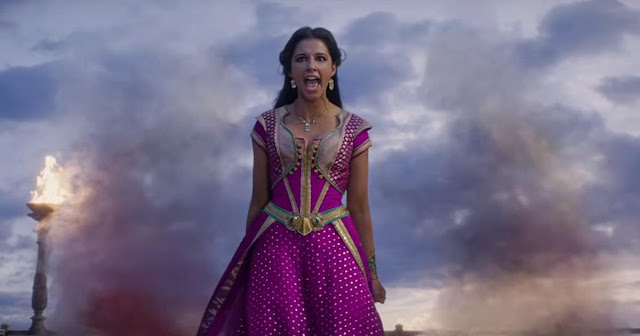Review: Charming
It took a lot of patience, but I finally had an opportunity to watch 3QU Media's animated film, Charming, which still has no known release date in America. The movie was exactly what it looked like from the trailer--a mildly entertaining and predictable Shrek wannabe with very little replay value. Considering that it was 3QU Media is still struggling with distribution on their first attempt at a film, I doubt we'll be seeing much else from them. The rudimentary animation was a dead giveaway for the studio's lack of experience. The fact that they incorporated watered down versions of Disney Princesses also shows that they didn't have enough faith in their own story. Even though the princesses did draw me in, I was hoping for a more fulfilling experience than this movie was able to provide.
To its credit, the story behind Charming is pretty original. Most fairy tales of old portray princes rescuing princesses and marrying them with the automatic assumption that they fall in love at the end, a tradition that Disney feebly attempted to overturn with Frozen. In Charming, Prince Philippe Charming attracts the love of all the princesses he meets with no effort on his part due to a curse that was placed on him as a baby by an evil sorceress named Nemony Neverwish. This cardboard caricature of an evil sorceress was bitter and angry about true love for reasons that we never learn in the film. The curse causes every woman that gazes into Philippe's eyes to fall madly in love with him so that he will never be able to experience what love really is. Like many curses from fairy tale stories, it is also a ticking time bomb that will somehow destroy all love if he cannot share true love's kiss with someone by his 21st birthday, and that is where the movie's originality falls short. Though the idea had promise, the climax fell back on every other movie trope, stripping it of the opportunity to ever become a classic.
There was one key line that was altered from the trailer that completely changed my impression of Philippe's personality. In the trailer, when the king asks Philippe if he is tired of being hated by all the men in the kingdom for stealing their true loves away, the prince claims that he is, but he likes being adored by the ladies. This scene does take place in the movie, but his response is very different. Instead of claiming to enjoy the attention, he tells his father that he has been doing his best to chase the ladies away because he knows that their love is not genuine. I'm not sure why they changed this in the trailer, but it completely transforms his character from the arrogant sleazebag he was promoted as into an ingenue who has no desire to hurt anyone and is curious about the meaning of love in spite of his curse. This made him easier to root for as a protagonist than, say, Prince Charming from Shrek 2.
The movie reverses the common gender roles for its two protagonists, turning Philippe into a delicate male damsel in distress who wants to go on adventures but isn't capable of defending himself due to living in a castle his whole life, which makes sense. His love interest, Lenore, is hired by the king to protect him on a "coming of age" type passage he must go on to prove his manhood and choose a princess to marry or something like that. The explanation was kind of murky. Lenore, who is immune to Philippe's curse due to metaphorically locking up her heart to protect it, is a lonely and adventurous thief who is a female version of Flynn Rider from Disney's Tangled. Lenore disguises herself as a man with the excuse that people might recognize her from her "Wanted" posters, but that doesn't make a whole lot of sense considering that she and Philippe must leave the kingdom for their journey and travel to places that are uninhabited by people, making it pretty unlikely that someone would have recognized her. In the end, the disguise was really just a plot device to prevent Philippe from falling in love with her too early in the movie, especially after meeting her without the disguise at the beginning on and feeling things that he had never felt before.
The worst thing about Charming was by far the music. The fact that they cast washed up Disney Channel stars to play the princesses foreshadowed the awful tween pop songs that were scattered throughout the film and did absolutely nothing to move the story along. The movie would have far much enjoyable if it had not been a musical at all. I could have overlooked the similarities that Philippe's fiances, Snow White, Cinderella, and Sleeping Beauty, had to their Disney counterparts if they had not taken the references even further by including out-of -place cameos of a mermaid with red hair and a green tail, a young woman in a blue dress walking through a crowd reading a book, and more. The premise of Philippe being unable to know what love is because of his curse was a great idea. If they had taken it in a different direction, it could have been a very poignant story. Instead, they incorporated so many Disney references and washed up pop stars that it became impossible to hide the fact that they were trying to rip off a far more successful and creative studio. It's a shame, really.
To its credit, the story behind Charming is pretty original. Most fairy tales of old portray princes rescuing princesses and marrying them with the automatic assumption that they fall in love at the end, a tradition that Disney feebly attempted to overturn with Frozen. In Charming, Prince Philippe Charming attracts the love of all the princesses he meets with no effort on his part due to a curse that was placed on him as a baby by an evil sorceress named Nemony Neverwish. This cardboard caricature of an evil sorceress was bitter and angry about true love for reasons that we never learn in the film. The curse causes every woman that gazes into Philippe's eyes to fall madly in love with him so that he will never be able to experience what love really is. Like many curses from fairy tale stories, it is also a ticking time bomb that will somehow destroy all love if he cannot share true love's kiss with someone by his 21st birthday, and that is where the movie's originality falls short. Though the idea had promise, the climax fell back on every other movie trope, stripping it of the opportunity to ever become a classic.
There was one key line that was altered from the trailer that completely changed my impression of Philippe's personality. In the trailer, when the king asks Philippe if he is tired of being hated by all the men in the kingdom for stealing their true loves away, the prince claims that he is, but he likes being adored by the ladies. This scene does take place in the movie, but his response is very different. Instead of claiming to enjoy the attention, he tells his father that he has been doing his best to chase the ladies away because he knows that their love is not genuine. I'm not sure why they changed this in the trailer, but it completely transforms his character from the arrogant sleazebag he was promoted as into an ingenue who has no desire to hurt anyone and is curious about the meaning of love in spite of his curse. This made him easier to root for as a protagonist than, say, Prince Charming from Shrek 2.
The movie reverses the common gender roles for its two protagonists, turning Philippe into a delicate male damsel in distress who wants to go on adventures but isn't capable of defending himself due to living in a castle his whole life, which makes sense. His love interest, Lenore, is hired by the king to protect him on a "coming of age" type passage he must go on to prove his manhood and choose a princess to marry or something like that. The explanation was kind of murky. Lenore, who is immune to Philippe's curse due to metaphorically locking up her heart to protect it, is a lonely and adventurous thief who is a female version of Flynn Rider from Disney's Tangled. Lenore disguises herself as a man with the excuse that people might recognize her from her "Wanted" posters, but that doesn't make a whole lot of sense considering that she and Philippe must leave the kingdom for their journey and travel to places that are uninhabited by people, making it pretty unlikely that someone would have recognized her. In the end, the disguise was really just a plot device to prevent Philippe from falling in love with her too early in the movie, especially after meeting her without the disguise at the beginning on and feeling things that he had never felt before.
The worst thing about Charming was by far the music. The fact that they cast washed up Disney Channel stars to play the princesses foreshadowed the awful tween pop songs that were scattered throughout the film and did absolutely nothing to move the story along. The movie would have far much enjoyable if it had not been a musical at all. I could have overlooked the similarities that Philippe's fiances, Snow White, Cinderella, and Sleeping Beauty, had to their Disney counterparts if they had not taken the references even further by including out-of -place cameos of a mermaid with red hair and a green tail, a young woman in a blue dress walking through a crowd reading a book, and more. The premise of Philippe being unable to know what love is because of his curse was a great idea. If they had taken it in a different direction, it could have been a very poignant story. Instead, they incorporated so many Disney references and washed up pop stars that it became impossible to hide the fact that they were trying to rip off a far more successful and creative studio. It's a shame, really.












Comments